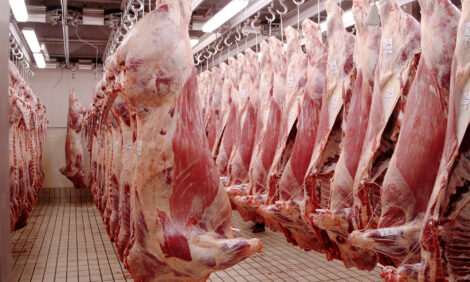



NFUS Against Livestock Reduction
SCOTLAND, UK - National Farmers Union Scotland members have given a resounding ‘no’ to using the controversial Article 68 measure to address the issue of reducing livestock numbers in Scotland.The Union believes it is critical that the Scottish Government takes steps to halt the loss of livestock from Scotland’s hills and uplands. However, the use of Article 68 risks destabilising the dairy and cereal sectors, as well as significant sheep and beef farms, in order to deliver money to producers, yet crucially without any requirement for them to remain actively farming in the future.
The process for decision-making has been unsatisfactory for both the Scottish Government and stakeholders because the rules relating to Article 68 are still being written by the European Commission. However, the current understanding of both the European Commission and Government here is that any farmer receiving an uplift in his Single Farm Payment through Article 68 could just sell those entitlements the next day and leave the industry. NFUS believes that is a fatal flaw in the proposal and risks the industry being accused of receiving money for nothing. NFUS has proposed alternative solutions that will deliver money straight into individual businesses, but only if they are committed to farming activity.
In response to a short consultation issued by the Union last week, 83 percent of members who responded by Email and fax did not want Article 68 used, six percent supported Article 68’s use and 11 percent were undecided.
NFU Scotland President, Jim McLaren said:
“The majority of our members have recognised that Article 68 is a blunt instrument that may do nothing to address the risk of destocking in parts of Scotland, indeed may actually do the reverse. For destocking to be tackled, funding must be targeted at the most vulnerable producers in a way that recognises and reflects ongoing activity.
“It is apparent that using Article 68 to boost the SFP of some producers in this manner cannot be permanently linked to activity and that those receiving an uplift in their SFP rates could just sell their entitlements the next day. At worst, this could be seen politically and publicly as ‘money for nothing’ and it could actually accelerate the exodus from the industry. I don’t know how the industry could justify those circumstances to itself, let alone the public.
“Discussions with other stakeholders indicate widespread support for the retention of the Scottish Beef Calf Scheme. The retention of the SBCS has been a central plank of NFU Scotland’s manifesto for reinvigorating the hill and upland sector and we are hopeful that Scottish Government will see the sense in retaining the SBCS.
“But other options that reward activity and halt the exodus of sheep from the hills and uplands are still urgently required. We continue to develop the potential roles that other strands of the Scotland Rural Development Programme, namely the Less Favoured Areas Support Scheme and Land Managers Option, could have in delivering much needed support to those who want to continue and commit to keeping livestock in Scotland’s hills and uplands. Our proposals could deliver real money – at least £8 to each of the most vulnerable ewes - to make a real difference to the sheep industry.”
TheCattleSite News Desk


